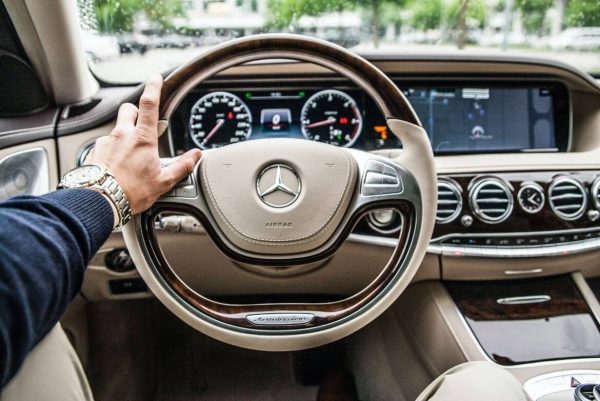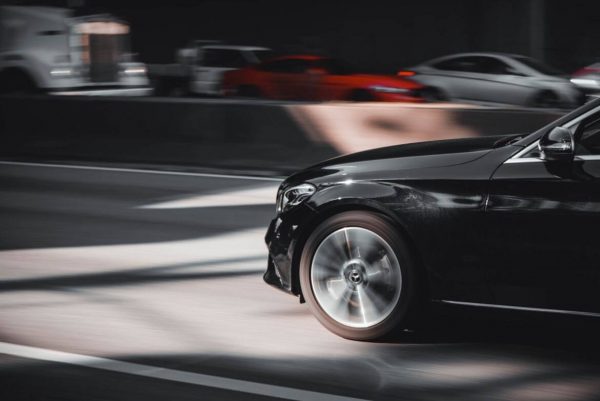Leasing vs buying a car is a hard decision to make. There are many factors you need to take into consideration, and the opinions out there vary from person to person.
When you need a new vehicle you have these two basic options: to lease a car or to buy one. It all depends whether you are the kind of person who doesn’t necessarily need to own a car, but always wants to drive the newer model, or you think of a car as a long-term investment.
 To help you decide which of the two options better suits your needs, this article will explain what leasing a car is, how it works, but also the pros and cons of leasing vs buying a car.
To help you decide which of the two options better suits your needs, this article will explain what leasing a car is, how it works, but also the pros and cons of leasing vs buying a car.
KEY TAKEAWAYS
- Leasing a car means paying a dealership for the right to drive it, for a certain period of time.
- When deciding whether leasing or buying a car, consider your driving habits and preferences.
- When leasing a car, you have a maximum number of miles you can drive, such as 10,000 or 15,000 miles per year.
- You have the chance to first test the car during the lease period, and then purchase it at the end of it.
Table of Contents
 Leasing a car explained
Leasing a car explained
Leasing a car means paying a dealership for the right to drive the vehicle for a certain period of time. Normally, car leases work between two to four years. Within this period, you will make monthly payments, just as you were paying a car loan. However, at the end of the lease payment period, you don’t own the vehicle.
On the other hand, when buying a car, you take full ownership of it. Of course, in case you are taking a car loan, you will own the vehicle once the loan is fully repaid. A payment in cash makes you the owner of the car straight at the purchasing time.
 How does leasing a car work?
How does leasing a car work?
A car lease is nothing else but a contract between you and a car dealership. Just as a tenancy agreement, when you decide to lease a car, you are agreeing to certain conditions set by the dealership. These conditions usually cover aspects such as:
- The term of the lease;
- Miles limitation per year;
- Maximum number of miles for the entire lease period;
- Penalties in case of exceeded mileage limits;
- Maintenance requirements and responsibilities;
- Monthly payments;
- Penalties in case of late payments;
- Early termination conditions.
 Most of the car leases will also give you a few options when the term ends:
Most of the car leases will also give you a few options when the term ends:
- Extending the lease on the same car;
- A purchase option with a fixed price;
- Singing a new lease, for a different car.
Pros and Cons of leasing a car
Now that we know what leasing a car is, and what it involves, let’s analyze the pros and cons of this option.
Pros of leasing a car
If owning a car outright is not a necessity for you, leasing a vehicle might be a great option. The main advantages of leasing a car are:
- The ability to drive a newer car every few years;
- Monthly payments which are usually lower when leasing a car vs a loan;
- The up-front payment is also lower to qualify for a lease vs a car loan;
- You have the chance to first test the car during the lease period, and then purchase it at the end of the lease term;
- A lease also offers you flexibility as you are not locked into the vehicle for a long term;
- The lease might include free oil change and other scheduled maintenance;
- Most probably you will be driving a car with the latest active safety features.
 Cons of leasing a car
Cons of leasing a car
Of course, there are also some disadvantages when leasing a car vs buying one. Here are some of them:
- You have a maximum number of miles you can drive, such as 10,000 or 15,000 miles per year;
- In case of exceeding mileage limits you will have to pay penalties;
- Ending the lease earlier than the initial term can be quite expensive;
- As you don’t own the car, you cannot customize it in any way;
- You will have to keep the car in good conditions, otherwise you will have to pay excess wear and tear charges.
 Leasing vs buying a car
Leasing vs buying a car
The table below presents main advantages and disadvantages of leasing vs buying a car, based on key criteria:
| Leasing vs Buying a car | Leasing | Buying |
| Ownership | You do not own the vehicle. At the end of the lease you must return the car, unless you decide to purchase it. | You own the car and you can keep it as long as you want. |
| Up-front costs | Usually they include: the first month’s payment, a refundable security deposit, an acquisition fee, a down payment, taxes, registration, and other fees. | They include the cash price, or a down payment, taxes, registration, and other fees. |
| Monthly payments | Lease payments are always lower than loan payments as you are only paying for the car’s depreciation during the lease. | Loan payments are usually higher than lease payments because you’re paying off the entire purchase price of the car, plus interest and other finance charges. |
| Early termination | If you need to end the lease early, penalties might be as costly as sticking with the lease terms. | You can sell or trade the car whenever you want. |
| Vehicle return | You return the vehicle and you walk away. | You will have to deal with the selling or the trading of the car whenever you want a different one. |
| Future value | The future value doesn’t affect you, however you don’t end up with any equity in the vehicle. | The car will depreciate, however its value is entirely yours. |
| Mileage | You will be limited to driving up to 10,000 – 15,000 miles per year. | You can drive as much as you want. |
| Excessive Wear and Tear | You’ll have to pay extra charges for exceeding what is considered normal wear and tear. | You don’t really have to worry about wear and tear. |
| End of term | You have the option of purchasing the car or leasing another one. | At the end of the loan there are no further payments for you, and you own the full car’s equity. |
| Customization | You are not allowed to bring any modifications to the car. | The vehicle is yours to customize and modify as you wish. |
Negotiating a car lease
Usually you can negotiate with the dealership the following aspects:
- The car’s cost;
- Value of initial payment;
- Monthly payments;
- Mileage limits, including penalties in case these are exceeded;
- Purchase options.
 What to consider before leasing a car
What to consider before leasing a car
Before approaching a dealership make sure you are prepared financially. For example, check your credit score as this might be verified by the dealership. The better your credit score is, the more room you have to negotiate.
Use an online lease payment estimator, so you can have an idea on how much you will be paying each month, but also for the entire period.
Try to make a plan for when the lease ends. In case you are considering purchasing a car, compare the best auto loan rates online.
 Leasing vs buying a car. Conclusion.
Leasing vs buying a car. Conclusion.
When deciding whether leasing or buying a car, consider your driving habits and preferences.
If you prefer to drive a new car every few years, and you do not usually drive more than 15,000 miles per year, leasing a car comes with many advantages for you.
On the other hand, if you drive more than 15,000 miles per year, and you think of it as a long term investment, purchasing a vehicle is much more convenient for you.
Check also: The high demand of BMW electric cars
